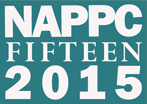 |
15th ANNUAL NAPPC INTERNATIONAL CONFERENCE |
|
|
Task Forces are cross discipline, short-term, project-oriented groupings designed to accomplish specific task(s). NAPPC partners will have the opportunity to provide input into groups on which they do not serve. New Task Forces will be created as needed. Learn about the 2014 NAPPC Task Forces here. 2015-2016 NAPPC Task Force Descriptions Bee Friendly Farming – Promote Bee Friendly Farming registration through collaboration with NRCS and other local agencies that support on-farm habitat for pollinators. Bumble Bees – Develop effective analysis to certify clean stock in captive breeding techniques for Bombus in North America. Federal Strategy Implementation - Build support and actions to implement the Federal Strategy on Pollinator Health. This taskforce will be comprised of federal and non-federal partners. Forage, Nutrition and Roadside Planting – Support the development of increased acres of bee forage in key regions, work to increase access to existing potential forage for beekeepers. Develop guidelines for regional seed mixes that can be used by Departments/Ministries of Transportation to effectively promote key pollinators along roadsides. Honey Bee Health – Determine priority criteria for 2016 Bee Health Grants and develop a sponsorship plan to increase support and partnerships for bee health research. Work to develop Bee MD APP. Monarchs – Develop conservation supports for the monarch butterfly in conjunction with Monarch Joint Venture and other initiatives. Topics will include support for monarch migration, overwintering and habitat. Building on the Monarch Wings Across America program. Pesticide Education – Develop and disseminate pesticide applicator training throughout the US and address other pressing pesticide issues. Pollinator Webinars – Develop a series of webinars that can be used and distributed by NAPPC partners to provide outreach and education on key issues (pollinators 101, planting a pollinator garden, CCD and honey bee health, pollinators and pesticides, etc.) Urban Pollinators – Expand pollinator gardens in urban areas and promoting urban agriculture. Also working to print and distribute urban pollinator poster. Vector-Born Diseases – Increase understanding of disease transmission mitigations and how they affect pollinator populations, develop management guidelines for municipalities, and develop publications for appropriate journals. |
|
|